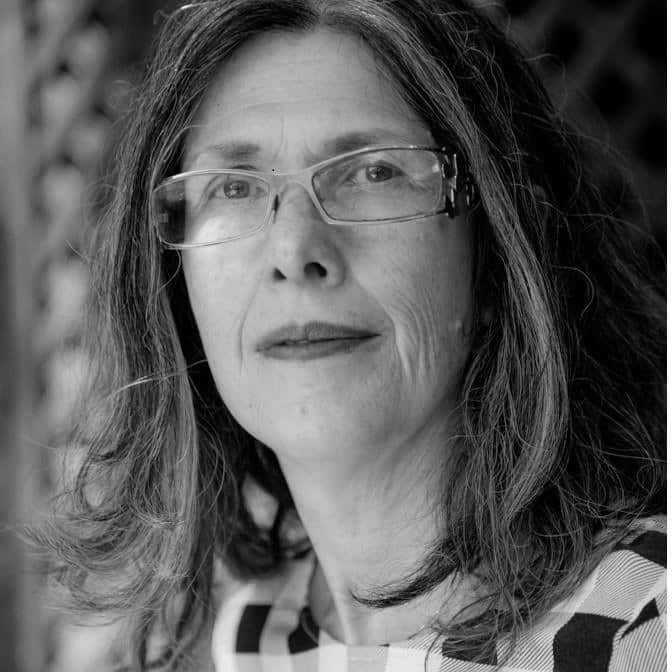“Listen, your brother’s blood cries out to God from the earth…”(Ex./Bre.)4:10)
The Black Lives Matter (BLM) movement has changed American discourse. It has forced a new conversation about systemic racism, that suppurating wound which continues to poison lives and sap our vitality as a nation. In my opinion, we American Jews have no choice but to acknowledge the leadership of this movement on this issue and find ways to work together. That is not the same as agreeing about everything or smoothing over issues. It’s about mutual commitment to the core message of BLM: every human–created as we Jews believe in the Divine image—deserves basic dignity and respect and when a group of people is systematically robbed of their due, we are obliged to act.
Black Lives Matter is not a membership organization but a constellated web, bringing varied organizations and individuals together around a common cause. The movement came into being in response to the disproportionate number of persons of color who have been shot dead by police officers (disproportionate as compared to white people shot under the same circumstances). Disgracefully, it became necessary, in 2016, to affirm the simple truth that the life of a human being with dark skin is irreplaceable, significant beyond measure, an ordinary miracle of the sort we celebrate every day with the Modim Anachnu Lach prayer.
BLM has demonstrated its creativity, its brilliant use of media and willingness to take chances—and also some uneven strategic clarity. Sometimes local BLM groups have been slow to take yes for an answer or to know when to declare a small victory and move on.
Now, more than 50 organizations and also individuals from various African-American communities have produced, through months of effort, a monumental work, a platform of demands supported by research. This document moves things to a whole new madrega. It demonstrates political sophistication and depth, moving from slogans to talking points, to detailed exposition and policy recommendations on the federal, state and local levels.
The platform takes class, gender and sexuality into account. In general, intersectionality is a good thing. Certainly, we Jews should understand that—we are all “Jews and—“: Jews and women, Jews and queer, Jews and Americans and, yes, Jews and people of color. To be Jewish and American is already to be inside and outside, to have a cultural memory that encompasses both the Liberty Bell and those Bronze Age tribes who collected around the imperative to love one’s neighbor as oneself.
The platform also contains references to the state of Israel in the context of calling for reduced military spending, including military aid to other countries. The words apartheid and genocide are indeed used.
Incidentally, Israel is not the only country accused of genocide here. These African American activists are also calling out what they see as genocide being committed within the Republic of Congo (so we need not interpret this as an ethnic or religious slur). This section of the platform resolutely condemns the Honduran government’s attacks on indigenous people and the violent dispossession, by the government of the Dominican Republic, against its citizens and residents of Haitian descent. Far more attention is paid to the general issue of the use of American military power worldwide.
For a lot of us, the use of the word “genocide” in this context looks like a pretty wild punch. A recent article in the Jewish Daily Forward goes some distance toward explaining that cultural erasure is what is meant (not mass extermination), but still. Everyone knows that the Jewish experience with genocide is far too recent and horrific for this usage to be heard as anything but a reckless provocation.
The Jewish community has responded to the BLM platform in various ways. Some organizations have declared their refusal to have anything to do with the Movement for Black lives as long as the objectionable parts of the platform remain unchanged. Other Jews, notably MaNishtana, prominent blogger who is a Jew of Color, have observed pointedly that most of those organizations have been missing from the movement to protect Black lives anyway, so their absence won’t make much difference now. T’ruah, a rabbinic human rights organization (one for which I volunteer proudly) has expressed its dismay with that section of the platform and also reiterated its commitment to work with the BLM movement wherever possible.
We need to remember that the grouping “Jews” includes people who also fall within the grouping “Black Lives.” We need to remember that Black mothers have been outliving their children who were fine before they fell into police custody. We need to remember “the talk” that such parents have to give their children as they grow up: look them frankly in the eye, don’t stare, don’t fidget, let them see your hands, hold still, don’t freeze up, answer clearly, watch your tone. Pray.
We need to look at unequal health outcomes, lending practices, employment and schooling. We need to remember our grandparents’ stories of how it was for us. We might have been under the control of Russia or Poland, Morocco or Tunisia, but we were identified as Jews. We had a place. There were consequences for defying it. And having arrived here, we were expected to modify our gestures, our voices, our names, our ambitions. Until some of us were allowed into whiteness. Until, thanks to the Black civil rights movement, restrictive covenants, the kind that forbade homeowners in certain neighborhoods to rent to Blacks, Latinos, Asians—or Jews—were made illegal. Until first we could pass and then we didn’t have to anymore.
MaNishtana writes (in Tablet, hardly a left wing publication), “Jews—pro-Israel, anti-Israel, Zionist, anti-Zionist, or simply non-Zionist—need to be in the room and on the ground and present. Because no player who sits on the bench for the whole game gets to complain about the score.”























 More news and opinions than at a Shabbat dinner, right in your inbox.
More news and opinions than at a Shabbat dinner, right in your inbox.